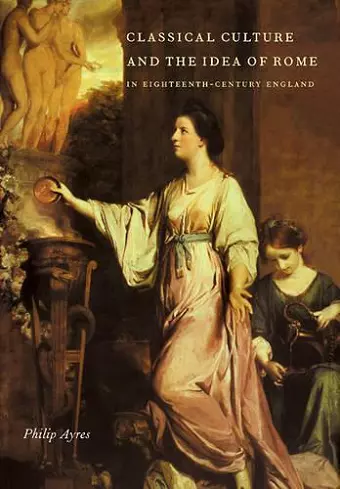Classical Culture and the Idea of Rome in Eighteenth-Century England
Format:Paperback
Publisher:Cambridge University Press
Published:19th Mar '09
Currently unavailable, and unfortunately no date known when it will be back

This book looks at the aristocratic adoption of Roman ideals in eighteenth-century English culture.
This book looks at the aristocratic adoption of Roman ideals in eighteenth-century English culture and thought. Philip Ayres shows how, in the century following the Revolution of 1688, the ruling class promoted - by way of its patronage - a classical frame of mind embracing all the arts, on the foundations of 'liberty' and 'civic virtue'. The historical fact of a Roman Britain lent an added authenticity to a new 'Roman' present constructed by Lord Burlington and his circle. Ayres's study shows that the propensity to adopt the self-image of virtuous Romans was the attempt of a newly empowered oligarchy to dignify and vindicate itself by association with an idealized image of Republican Rome. This sense of affinity with the ideals of the free Roman Republic gave British classicism an authenticity impossible under the various versions of absolutism on the continent. Its discourse precluded any more thoroughgoing revolution by suggesting that Britain's liberty had been won by an 'oligarchy of virtue', which now defended, defined and emblematized the nation.
Review of the hardback: 'Classical Culture and the Idea of Rome in Eighteenth-Century England is an elegant book of just the right size that pays proportionate attention to the various aspects with the right amount of references and quotations. The aesthetic pleasure of a well produced book adds to the intellectual joy.' Mnemosyne
Review of the hardback: 'Extremely well researched and convincingly argued, this ambitious book is a very welcome addition to scholarship. The argument is clearly thought through.' Latomus
ISBN: 9780521105798
Dimensions: 229mm x 152mm x 16mm
Weight: 490g
296 pages